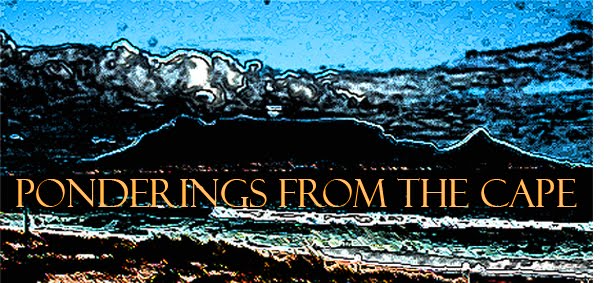"If you wish another to keep your secret, first keep it to yourself." - Seneca (Lucius Annaeus Seneca)
TODAY'S BOOK:
The Spy Who Came in from the Cold - John le Carré
When the Berlin Wall came down, the spy novel was suddenly under threat - because most of the best spy novels had their roots in the cold war between East and West. The authors that specialise in that genre have meanwhile found new material in new conflicts, but the classic Spy v Spy novel has undergone a shift towards a kind of international intrigue that is somewhat different in scope and focus.
If ever there was a single name that stands out among the writers of spy novels, it is that of John le Carré. And if ever one book became the symbol of the genre, it is The Spy Who Came in from the Cold. Graham Greene, who had written the screenplay for that most iconic of spy films, The Third Man, called it "The best spy story I have ever read."
 It was not the first spy story I ever read - as a youngster read some of Ian Fleming's James Bond books before (but much preferred the movies). But once I read The Spy Who... and especially once I had also seen the movie starring Richard Burton (one of my screen heroes), I was hooked on Le Carré's writing and characters. I think I own every single book he has ever written - and those that are not on my bookshelves, have been borrowed and not returned. I once owned at least 4 different editions of The Spy Who... but gave some away to friends during one of my many moves. The mesmerising character of George Smiley actually already appears in Le Carré's first novel, Call for the Dead, but this is the one that established Smiley as a symbol of the kind of character that Carré creates - detached yet human, cynical yet loyal, brilliant yet naive.
It was not the first spy story I ever read - as a youngster read some of Ian Fleming's James Bond books before (but much preferred the movies). But once I read The Spy Who... and especially once I had also seen the movie starring Richard Burton (one of my screen heroes), I was hooked on Le Carré's writing and characters. I think I own every single book he has ever written - and those that are not on my bookshelves, have been borrowed and not returned. I once owned at least 4 different editions of The Spy Who... but gave some away to friends during one of my many moves. The mesmerising character of George Smiley actually already appears in Le Carré's first novel, Call for the Dead, but this is the one that established Smiley as a symbol of the kind of character that Carré creates - detached yet human, cynical yet loyal, brilliant yet naive. Just writing about this makes me want to read them all in sequence again. Perhaps I'll start doing that in the course of the rest of this year and will report back by writing about each of them in turn. Perhaps some of the readers of my blog love spy stories too and would like to form a little "let's read all of Carré-club?" Let me know...
Are these books about spies in the years of the Cold War dated? Perhaps the subject matter is no longer current. But we are now removed far enough in time from the end of the Cold War to start seeing the Le Carré books that date from that era in a different light: not as dire warnings about current events, but as razor-sharp analysis of the mentality, the (im)morality and cynicism of espionage and the kind of person that engages in dark international dealings. Today they use different methods and focus on different issues in different parts of the world. The revolution in communication media and technology since Le Carré wrote The Spy Who... in 1963 has changed the activities of people moving in the shadows but human nature is still the same and international intrigue is still with us, albeit in different places, practiced in different ways by different kinds of spies.
But even now, nothing has changed about the quality of Le Carrés spy stories. He knows that shadow world better than most. After all, he should know, because David John Moore Cornwell (John le Carré is his pen name) worked for the British MI5 and MI6 during the 1950s and 1960s.
Although there is action and intrigue in these books, what fascinates me is the tone and style, the insight into human nature and into the way in which people and organisations manipulate and get manipulated. The questions that he asks have become the true hallmark of Le Carré. It is true that some of his books are probably better than others, but I always find them a more-than-worthwhile read. Born in 1931, he is no longer a young man - but he still writes and every new novel from his pen is a literary event.
Many of the books by other authors who started writing spy novels and thrillers in that same era did not stand the test of time that well. This, however is a classic. If you have not read it, and are looking for something good in this genre, this is it.
TODAY'S PICTURE
 |
| Moon and Venus 11 Sept 2010 |
Picture & text: © Lee Labuschagne - ALL RIGHTS RESERVED







No comments:
Post a Comment
Add your comment(s) here: